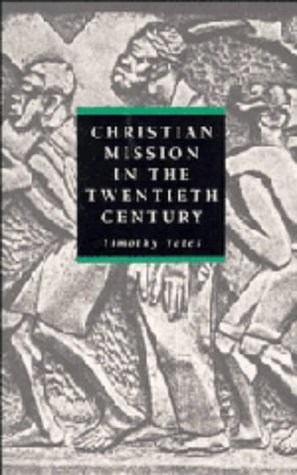Human Nature at the Millennium: Reflections on the Integration of Psychology and Christianity
Written by Malcolm A Jeeves Reviewed By James R BeckAcademic and research psychologists will appreciate this latest volume of Dr Jeeves, a honorary research professor at the University of St Andrews School of Psychology in Great Britain. In many ways this book is an update of two of his earlier books, Psychology and Christianity: The View Both Ways and Psychology through the Eyes of Faith which he jointly wrote with David Myers. Dr Jeeves’ distinguished work as a research psychologist in the area of neuropsychology eminently qualifies him to review the status of academic and research psychology as we near the end of the 2nd Christian Millennium. He reviews the current status of brain research as it related to mind, spirituality, and behaviour. He discusses human versus animal nature as well as consciousness research and how each of these topics relates to determinism, free will, and responsibility. His concluding chapter, entitled the Future of Science and Faith: Beyond Perspectivalism?, looks to the future of the integration enterprise.
Material in this book is written at an advanced level best suited for advanced undergraduates of beginning post-graduate students. Jeeves has written helpful, closing summaries of each chapter. Readers unfamiliar with a specific area may benefit from reading this closing section of the chapter before reading the chapter, although his six page summary of the seven page chapter 13 slightly stretches the meaning of the word ‘summary’. Most American readers will be disappointed, however when they read the author’s evaluations of the applied branches of psychology: clinical counselling, and psychotherapy. This disappointment reflects, in part, the difference between the field of Christian psychology in Britain and its characteristics in North America. In Britain the emphasis of Christians working in the field of psychology has been in the academic, research, and experimental branches of the discipline. Perhaps this impression Americans have of British Christian psychology is because of the Christian authors published and readily available in the US: Jeeves and Donald Mackay as two examples. Most of the clinical material coming from Christians in Britain has more of a pastoral tone to it. The scene in North America is quite different. If anything, the larger number of Christians working in the field labour in the applied branches as opposed to the research branches of psychology. Likewise, most of the integration work done in North America by Christians has been in the applied fields.
Jeeves has chosen to reflect on the integration of the applied branches of psychology at the end of this millennium by focusing on the critiques of Robyn Dawes whose 1994 work, ‘House of Cards’, is very critical of the field of psychotherapy. While all responsible clinicians will grant that the field of psychotherapy is deserving of some sharpening criticism, they would also expect a more extensive set of reflections on Christian integration work in the applied branches of our discipline than Jeeves has given us.
We appreciate that Jeeves has Identified his attitudes on this subject. ‘Those psychologists working at the more experimental, biological end of the psychological continuum view with considerable scepticism the claims to be scientific made by most to the personality theorists’ (p. 170). Yet Jeeves gives his readers little evidence that he is aware of the empirical revolution that has occurred in the field of personality theory in the last five years: namely, the strong research base for the Big Five trait theory. The author holds similar attitudes toward psychotherapy an counselling.
Academic psychologist, perhaps including Jeeves, sometimes seem to be embarrassed that the field of psychology has an applied arm. They express great antipathy to all things not proven empirically, and they have a point. But the antipathy is mutual. Applied clinicians wonder how they can use the work of the academic researcher who labours over hemispheric brain studies when the next narcissistic personality client comes for his appointment in one hour. The gap between the research and the applied branches of our field is as wide as ever, as evidenced in the US by the rift between the American Psychological Society and the American Psychological Association. In the 215 footnotes in the book, Jeeves refers to only four articles in the Journal of Psychology and Theology and no articles in the Journal of Psychology and Christianity. We do not know why the author has chosen not to include this mass of American integrative work in his book evaluating the status of integration.
I fear there may be two misuses made of this title. 1. The anti-psychology movement in the US will no doubt use the criticisms Jeeves makes of psychotherapy as part of their reckless assault on the entire field of psychology. 2. Clinicians will be discouraged by the style of language Dr Jeeves has chosen to use regarding psychotherapists: ‘so-called professional psychotherapists’ (p. 152), approvingly utilising material from Dawes who speaks of the self-preservation and self-aggrandisement motivations of clinicians (p. 153), and his call for the church to move to lay counsellors who are ‘ready to offer their talents without financial rewards to their fellow Christians’ (p. 153). (Jeeves makes this call without the logical corollary to it: that we should abandon use of a professional, trained clergy since lay persons can do it as well and won’t be paid for their service). This language may drive clinicians further away from the collaboration with researchers that Jeeves says they so desperately need.
Readers looking for an excellent summary of the integration enterprise between academic psychology and Christianity will find no better title anywhere. Readers who are interested in a helpful summary of the integration enterprise between academic psychology and Christianity will find no better title anywhere. Readers who are interested in a helpful summary of the integration enterprise between applied psychology and Christianity will have to look elsewhere, however.
James R Beck
Denver Seminary, Denver, CO







